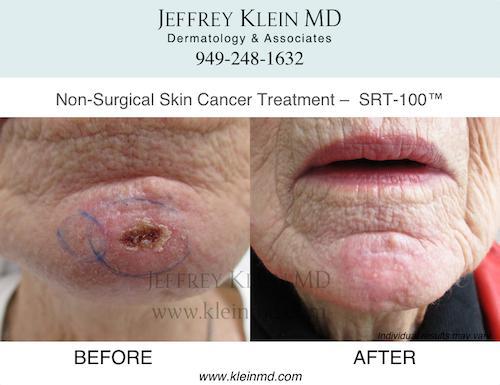
In some cases, the cancer cells in the skin will spread to other parts of the body. In these cases, the treatment will involve chemotherapy drugs and/or surgery. There are several medications approved by the U.S. Food and Drug Administration to treat basal cell carcinoma. Most of these drugs are available as topical treatments and have minimal side effects. However, the side effects can be severe or the cancer may spread to other parts of the body.
Surgical excision of the tumor is the primary treatment for basal cell carcinoma. This procedure is the most effective method for removing the cancer and is associated with the lowest recurrence rates. Although surgery will leave scarring, the surgeon aims for a cosmetic result as well. Larger tumors will usually require cosmetic surgery, including skin grafts. Some patients may undergo radiation therapy. This type of therapy is very expensive, and many people have to live with the side effects of radiation.
In some cases, medications aren’t the first option for treatment. Surgery is the mainstay of treatment for basal cell carcinoma. A limited number of medications are used to treat the disease. Depending on the type of basal cell cancer, a doctor will prescribe specific medicines for each patient. Often, the dosages are based on the patient’s condition, age, and weight. When surgery isn’t an option, the doctor may recommend chemotherapy.
Among the various treatments for basal cell carcinoma, targeted therapy is the most effective. This treatment involves using powerful drugs to destroy cancer cells. These drugs are most effective in cancers that have spread to other parts of the body. It’s recommended for metastatic basal cell carcinoma, deep skin cancer, or recurring skin cancer. These treatments are more expensive and time consuming than other methods of treatment. The only downside to this type of treatment is that it’s not as effective as the other options.
In some cases, drugs for basal cell cancer are not enough to treat the condition. In such cases, surgery may help. The cancerous tissue is removed and the patient is left with scars. In some cases, cosmetic surgery is necessary for large tumors. Sometimes a skin graft is also required. These treatments will vary depending on the stage of the disease and the individual patient’s response to treatment.
Some patients do not tolerate surgery or do not want to have it. In such cases, alternative treatments such as curettage and electrodesiccation may be recommended at https://handaldok.com/, which involve scraping off the tumor with an instrument called a "curette" and destroying the base of the tumor with an electric needle. Smaller basal cell carcinomas are more likely to be treated with C and E. They will also be more expensive and time-consuming than other treatments.
If the cancer is small and can be removed by surgery, patients are treated with chemotherapy and/or skin grafts. These treatments may have side effects. Some people will experience permanent scarring or disfigurement after surgery. Some people have a favorable outlook for basal cell carcinoma when treated early. For these reasons, dermatologists are the first line of defense in the diagnosis of basal cell cancer. While most patients will be happy to hear that their treatment options are more effective than the original cancer, it is important to be aware of these risks and complications.
As mentioned earlier, basal cell cancer treatments are highly individualized and depend on the cancer type. While surgery is the mainstay of treatment, there are several medications available. The FDA sets the standard dosages for these drugs. They are based on the patient’s medical condition and response to the treatment. For example, some patients are prescribed two or three different medications to treat their basal cell carcinoma. Another option is to combine them.
There are several medications available to treat basal cell cancer. The most common medication is imiquimod, which is prescribed in place of surgery. This medication activates the immune system to attack the cancer. It is effective for superficial basal cell cancer but is not suitable for the rest of the BCC. This medication has a high recurrence rate compared to surgery. Even if the treatment does not completely cure the cancer, it may stop the growth of the cancer cells.